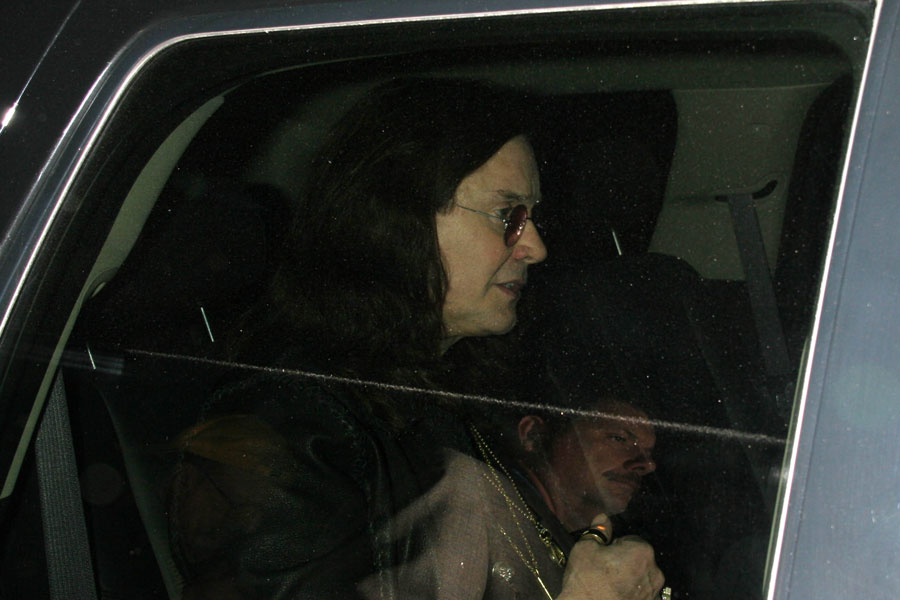Ozzy Osbourne Delivers Heartfelt Farewell at Black Sabbath’s Final Concert in Birmingham; Largest Heavy Metal Gathering In History

BIRMINGHAM, UK – In what will likely be remembered as one of the most emotionally powerful moments in rock history, Ozzy Osbourne bid farewell to fans with a tear-filled performance during Black Sabbath’s final concert, Back to the Beginning, held at Villa Park in his hometown of Birmingham. The event marked the culmination of a legendary career that spanned more than five decades and closed the curtain on the band that helped define heavy metal.
Though battling advanced Parkinson’s disease, the 76-year-old rock icon captivated tens of thousands of attendees and millions more watching online as he performed “Mama, I’m Coming Home” seated atop a custom bat-shaped throne. The poignant ballad, originally released on Osbourne’s 1991 No More Tears album, took on new meaning in this context – symbolizing both a literal return to Birmingham and an emotional goodbye to fans, family, and the stage.
The night featured a full reunion of Black Sabbath’s original lineup – Osbourne, Tony Iommi, Geezer Butler, and Bill Ward – marking their first live performance together in two decades. The setlist was a powerful mix of hits from both Osbourne’s solo catalog and Sabbath’s groundbreaking discography, including “Paranoid,” “Iron Man,” and “War Pigs.”
Hosted by actor and metal enthusiast Jason Momoa, the evening also featured performances by a staggering lineup of rock and metal acts such as Metallica, Guns N’ Roses, Tool, Pantera, Slayer, Anthrax, and Halestorm. The event was crafted under the creative direction of Tom Morello and positioned as one of the largest heavy metal gatherings in history.
Beyond the music, the concert served as a major philanthropic endeavor. All proceeds were donated equally to Cure Parkinson’s, Birmingham Children’s Hospital, and Acorn Children’s Hospice. Early estimates indicate that the event raised over $180 million for these causes, turning the farewell into a night of lasting impact well beyond music.
The performance of “Mama, I’m Coming Home” was widely cited by fans and media as the emotional pinnacle of the evening. Attendees described a “collective wave of tears” that swept through the crowd, with Osbourne’s raw vocal delivery resonating deeply given his visible vulnerability and health struggles. Social media was flooded with video clips and tributes, with fans calling it one of the most moving moments in live music.
Adding to the sense of nostalgia and closure was the symbolic return to Birmingham – a city that gave rise to Black Sabbath in the late 1960s and shaped the genre that would go on to influence generations of musicians. The performance was more than a goodbye; it was a homecoming, a tribute, and a celebration of endurance, resilience, and legacy.
Ozzy’s family, including wife Sharon and their children, were seen visibly emotional during the performance, highlighting the deeply personal nature of the moment. With the final notes of “Mama, I’m Coming Home” echoing through the stadium, the Prince of Darkness offered a fitting goodbye to the fans who supported him through decades of triumph, controversy, and reinvention.
As the lights dimmed on Villa Park and the band took their final bow, fans were left with a sense of profound gratitude and finality. For those who witnessed the moment – whether in person or through the global livestream – the concert was not just an end, but a historic bookmark in rock’s long and unruly story.
Top Questions About Ozzy Osbourne’s Final Concert – Answered
Q1: Was this really Ozzy Osbourne’s final live performance?
A: Yes, July 5, 2025, marked Ozzy’s final concert appearance. Held in Birmingham with the original members of Black Sabbath, it was officially promoted as the band’s farewell show and Ozzy’s last live performance due to his ongoing health issues.
Q2: Why was the song “Mama, I’m Coming Home” so emotional?
A: The song was symbolic of Ozzy’s return to his hometown of Birmingham and served as a personal farewell to fans, friends, and family. Given his battle with Parkinson’s and limited mobility, the lyrics carried deeper emotional weight, reflecting love, loss, and closure.
Q3: Who else performed at the “Back to the Beginning” concert?
A: The concert featured an all-star lineup including Metallica, Guns N’ Roses, Slayer, Tool, Pantera, Mastodon, Anthrax, Alice in Chains, Gojira, Halestorm, and more. Actor Jason Momoa hosted the event.
Q4: How many people watched the concert?
A: Over 40,000–45,000 people attended in person at Villa Park, with an estimated 5.8 million viewers tuning in via the global livestream.
Q5: Was any money raised for charity?
A: Yes. The event raised an estimated $180–200 million, all of which went to Cure Parkinson’s, Birmingham Children’s Hospital, and Acorn Children’s Hospice.
Q6: What was Ozzy’s health condition during the show?
A: Ozzy, 76, has advanced Parkinson’s disease and other health complications. He performed seated in a bat-themed throne, but his voice remained powerful, leaving a lasting impression on fans and critics alike.
Q7: Is this the end for Black Sabbath too?
A: Yes. The concert was branded as Back to the Beginning, symbolizing a final reunion and farewell for the original lineup. It’s the last scheduled performance for Black Sabbath as a group.
Q8: Will the concert be available to watch again?
A: While the livestream was broadcast globally, no official re-release has been announced yet. Fans hope a recorded version or documentary will be made available in the future.


